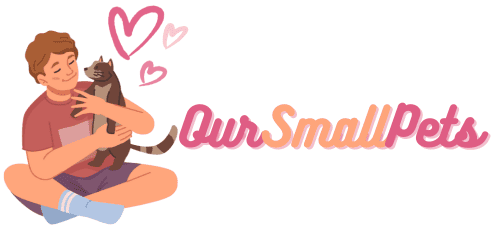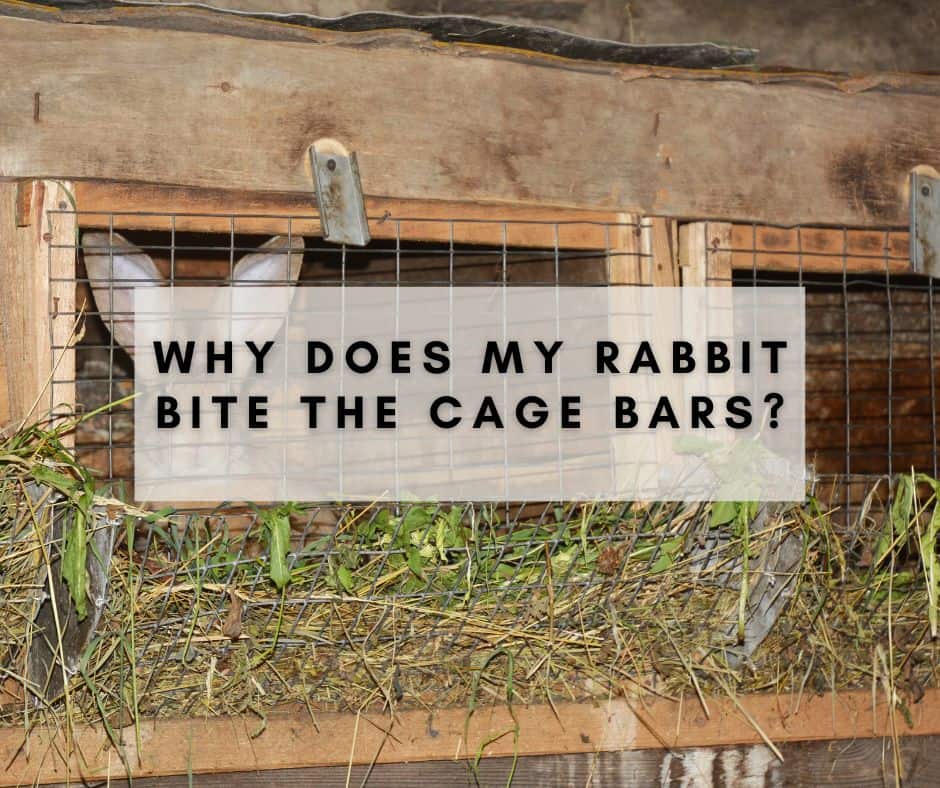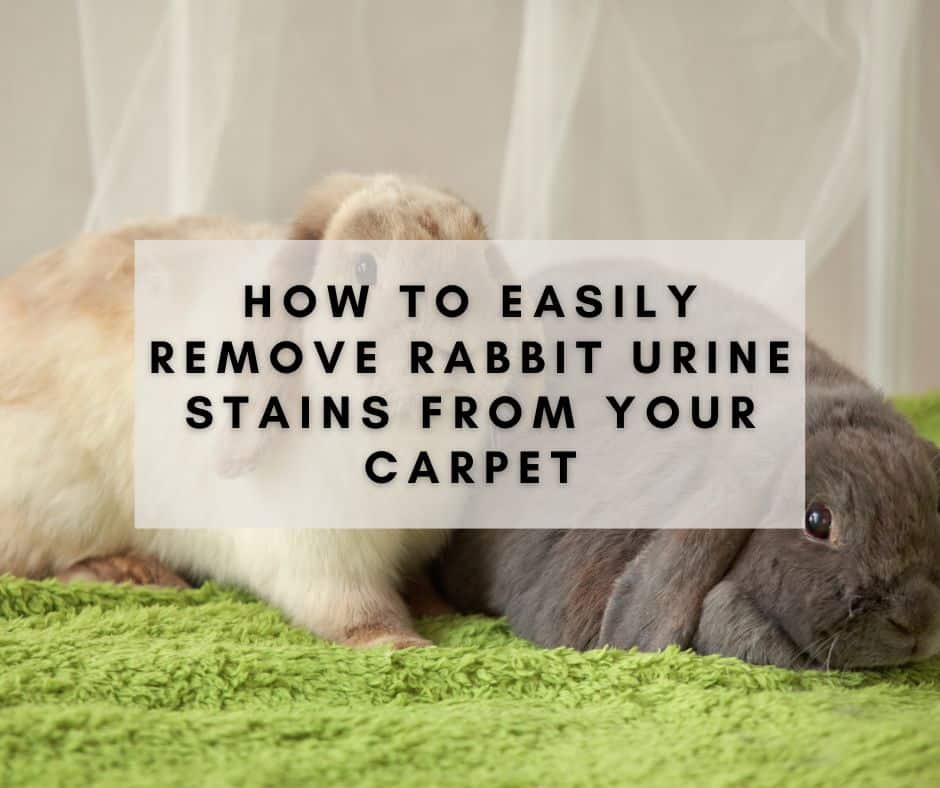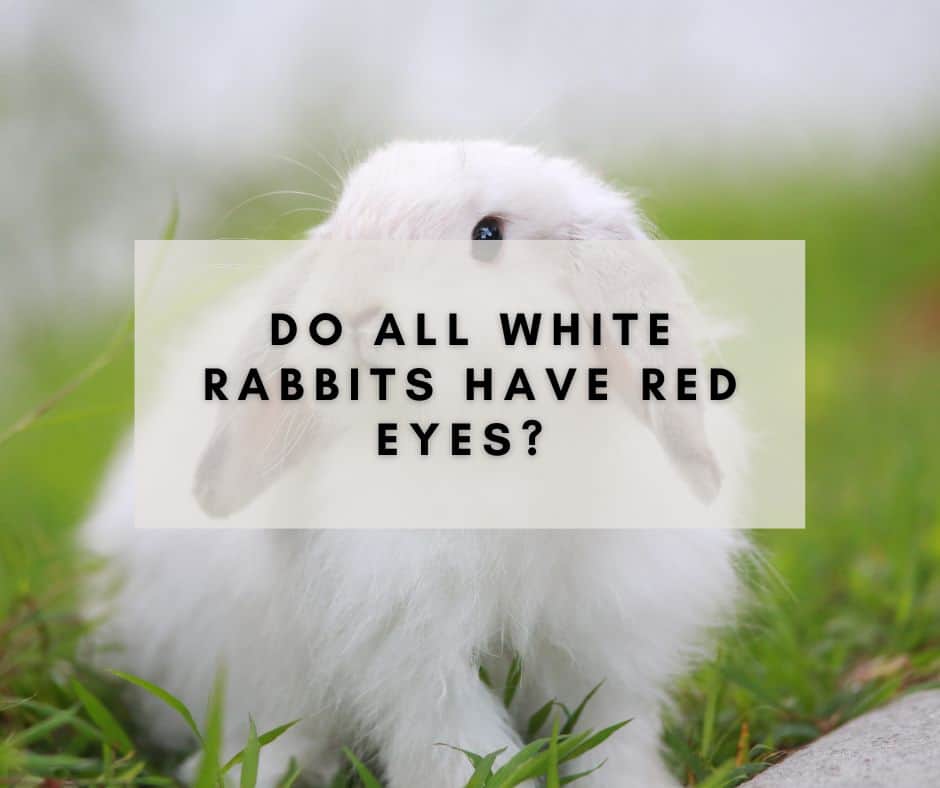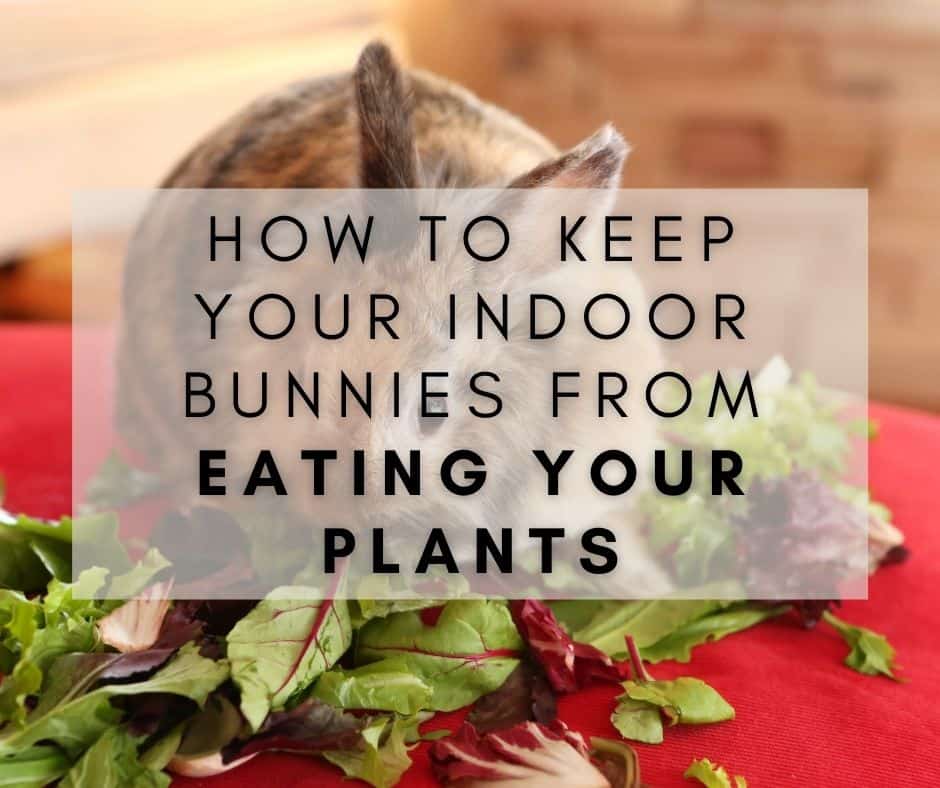
Do you have indoor bunnies? They are so adorable, but how do you keep them from eating your plants? This is a question that many people ask themselves. In our house, we’ve had this problem with one of our bunnies. Bunnies love to nibble on things like leaves and flowers. The following steps will help ensure that your bunnies don’t eat all of your houseplants.
As a general rule, bunnies should not eat your houseplants. However, some plants are poisonous to them and could make them sick or worse! This is why you need to keep an eye on the list of toxic indoor plants.
If any plant has a rabbit or hare in its name such as “Lepus” (a genus of small mammals that includes rabbits and hares), it is likely poisonous to bunnies.
This is why you need to have a good understanding of what plants are safe for them to munch on, and what you can do if you do not want your fuzzy pet to eat your plants.
Contents [show]
Free-roaming bunnies
If your bunny is allowed to roam freely around the house, he or she may eat your plants. By keeping the bunny out of the room where the plants are, you can prevent this from happening. You can close doors or install baby gates as necessary.
This also goes for rooms with other potential hazards, such as electrical cords.
The problem with electrical cords and bunnies…
In addition to keeping your bunny out of the rooms where the plants are, you should also keep him or her away from places with electrical cords. This is a potential hazard for any pet and can cause serious injury if they chew on it. Make sure that all cords are hidden so as not to attract their attention. If this isn’t possible, you may want to consider using cord covers.
Cord-covers are a must-have when having bunnies indoors. Bunnies tend to chew on smaller cables. I do not know why this is, but they tend to leave bigger cables by themselves.
Bunny-proof your house
It’s also important to bunny-proof your entire house. Bunnies are very curious and like to explore their surroundings. They can get into trouble if they’re able to access things that they shouldn’t be eating or playing with. So make sure that all of your plants are out of reach, as well as any other items that might be harmful to them.
If you have any questions about whether or not a certain plant is safe for your bunny, be sure to ask your veterinarian. They will be able to help you make the best decision for your pet and your home.
If you have any questions about how to keep your indoor bunnies from eating your plants, please feel free to contact us. We would be more than happy to help!
What household plants are toxic to bunnies?
Some of the most common household plants that are toxic to bunnies include:
- Lilies
- Ivy
- Philodendron
- Azalea
- Dieffenbachia
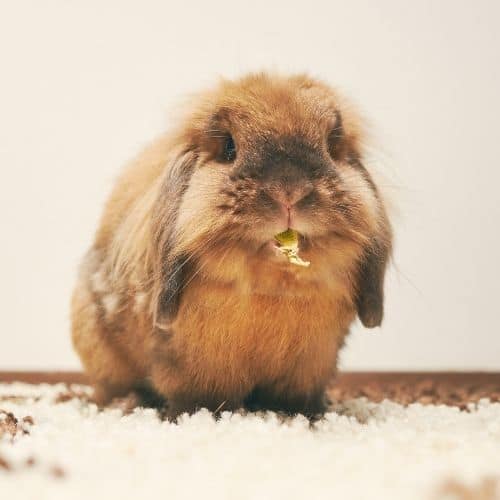
If you think that your bunny may have eaten any poisonous plants, please contact your veterinarian immediately. They will be able to help diagnose and treat your bunny if necessary.
Keep your indoor bunnies from eating your plants by following these simple steps! By keeping them away from the plants and out of trouble, you can ensure that both your plants and your furry friends stay safe.
10 Tips You Can Try To Bunny-proof your Plants!
- Getting a plant that is bunny-proof
There are a few plants that are bunny-proof, which means that they will be safe for your bunnies to eat. These plants include philodendron, spider plants, and pothos. If you have any other plants in your home, it’s best to keep an eye on them and make sure that the bunny isn’t eating them. If she is, you may want to consider getting rid of the plant or moving it somewhere where your bunnies can’t get to it.
- Using a playpen to keep them away from plants and electrical cords.
Bunnies love chewing on anything they can find, so it is important to bunny-proof your entire house. You should also consider getting a plant that isn’t as likely to be eaten by the bunnies or putting them in their own playpen to keep them away from your plants and electrical cords. Contact us if you have any questions or need help with this! We’re more than happy to assist you.
- Using a water spray bottle to deter them
One way to stop your bunny from eating your plants is by using a water spray bottle. You can lightly spritz the leaves of the plants when your bunny is near. This will discourage them from eating or nibbling on it.
- Avoid having acidic soil in any of your houseplants
One way to keep your bunnies away from eating your indoor plants is by avoiding houses with acidic soils, which are common in many types of houseplants. If you have an indoor plant that your bunny loves to eat, try changing the soil to make it less appealing to them.
- Using a physical barrier
Another way to keep your bunny from eating your plants is by using a physical barrier. This can be done by placing inverted pots around the base of the plant or installing fencing around it. By doing this, you can keep your bunny away from the plant altogether.
- Try having real plants instead of fake ones
If it is possible to have live indoor houseplants instead of artificial ones, this might be another alternative for keeping your bunnies at bay. Real live plants are less likely to be eaten by animals than faux or fake plants.
- Place the plants on higher ground
Placing your plants higher up can also be another way to avoid having your bunnies eat them. If the plant is at their level or slightly above, they are more likely to try and climb it or jump towards it then if you were able to find a location where they cannot access it.
- Having more than one type of plant in the room
If you have a lot of plants in one room, it might be less appealing to your bunny as they will not know which one to eat first. This can help deter them from eating all of your plants at once.
- Using a plant hanger
If you have a hanging basket or planter, try using a plant hanger to keep your bunny from getting to the plants. This will also make them less likely to chew on the cords that might be hanging down.
- Move all of your plants to one area
If you’re not able to keep your bunny from eating all of the plants you have, consider moving them to a single location. You can find a spot that is away from where they typically play and eat so they won’t be able to access it as easily.
Conclusion
In conclusion, there are quite a lot of things you can do to try and keep your bunny from eating your plants. Some of these include using a water spray bottle, having live plants instead of artificial ones, and placing the plants in an area where the bunny cannot reach them. If all else fails, you can move all of your plants to one spot and keep an eye on them. Contact us if you have any questions or need help with this! We’re more than happy to assist you.
If you found this article helpful, please share it with your friends and family. And be sure to check back soon as we will be publishing more helpful how-tos and tips!
